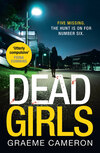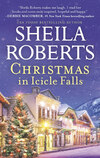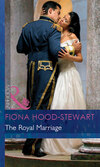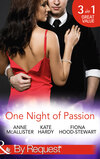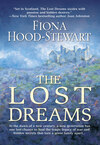Kitabı oku: «The Journey Home», sayfa 3
Jack hesitated, obviously not too pleased. Suddenly India gave up the fight, realizing it was pointless to have a quarrel, and decided to let Serena take him if she so wanted to. Not having to go out in the dark, on a road she didn’t know, and in what looked as though it might develop into a nasty snowstorm, would be a welcome relief. Her head was throbbing, her feet were killing her and all she wanted now was to get some rest. For a fleeting moment she wondered what Serena’s motive was for wanting to go. Maybe they knew each other far better than she suspected. If so, it was none of her business, and the sooner they left her in peace, the better.
Jack opened the door to allow them passage into the hall. Serena grabbed her jacket and barged through, heading straight for the porch, and down the stone steps to the heavy oak front door.
“See you later, India. I’ll lock up when I get back,” she threw over her shoulder.
Jack turned. Serena’s footsteps still echoed between them as they stood face-to-face under the high dome of the dimly lit stucco hall. There was a sudden lull, each waiting for the other to speak.
“You take care,” he said finally, taking her hand, and, to her surprise, raising it to his lips.
She blushed despite herself, thankful for the shadows. “Thanks for bringing me back.” She wanted to say, “And for being so understanding,” but instead she hastily retrieved her hand and tucked it in her pocket. “That’s Serena hooting in the car. The weather seems to be worsening by the minute. You’d better go.”
“Right.” He paused, lingering. “When are you leaving?”
“After the funeral. I have to get back home to Switzerland and work.”
“I guess that’s it then. Who knows, perhaps our paths will cross one day. Thanks for the tea and the tour of the house. I really enjoyed it. Goodbye for now, and good luck.” He seemed to hesitate, then smiled. India wasn’t sure if it was the light or her imagination, but all at once his eyes seemed alight once more with depth and understanding. As though he cared. She told herself to stop imagining things, and watched him head down the stone steps.
Halfway down he turned back, his eyes finding hers through the darkness. “And by the way, just to set the record straight, my name’s Jack, not Mr. Buchanan.”
Her mouth broke into an involuntary smile. “I’ll remember—Jack. By the way, don’t forget your gun and the dogs—and your jacket. Tell Serena to stop at the side door. It’s open.”
“Thanks, I will.”
He disappeared, leaving her to the haunting emptiness of the night and the echo of the front door closing loudly behind him. India shivered, pulled the cashmere cardigan closer about her shoulders, and wandered over the ancient Persian rug, its hues mellowed by the passage of generations of Dunbars. She stopped at the drum table standing alone in the middle of the vast hall and looked down at the vase of roses set there. Once more her heart filled with grief.
They were the flowers her mother had been arranging at the time of her death.
They remained, just as Lady Elspeth had left them. She had placed the last delicate rose in the Waterford vase, then been struck by a massive heart attack, dying as gracefully as she’d lived. India decided to take the roses and dry them. They would be a tiny part of her mother that would remain with her always.
Wandering over to the grand piano, she smoothed the surface of the instrument and sat down, gazing through the shadows at the keys. Slowly her fingers reached out to the keyboard and she began playing, the strains of Chopin enveloping her as she drifted into her mother’s favorite nocturne. India played in the dark, paying a last, solitary tribute to her mother, a woman she loved, yet who’d been somewhat removed from the realities of life.
The notes lingered, reaching up toward the high-ceilinged dome. Outside, snow fell, heavy and silent. The sitting-room lamps flickered, and shadows danced eerily on the stucco walls as India poured her feelings into the music. Love, vexation and anger mingled with a deep, abiding sense of loneliness. Finally her tears flowed unimpeded.
As nocturne came to a close, and the last resounding chords echoed, she lifted her hands from the piano and her tears flowed unimpeded. It was a precious moment she would always remember.
India rubbed her eyes thinking now of the problems ahead—debts, tax issues and God only knew what else. Lady Elspeth had always skimmed over the subject, uneager to dwell on anything disagreeable, and India had no clue how the estate had been left. It was another subject non grata. In a way it might be easier if Serena inherited the lot. As for her mother’s house in Switzerland, India had learned only the other day that it was mortgaged to the hilt. Poor Mummy. If it hadn’t been for the Marchese, her old and faithful admirer who’d helped her take charge of her affairs during these last few years, she would have ended up penniless.
But there was no point in dwelling on the negative.
India closed the lid of the Steinway, then trod wearily up the stairs, the strain of the last few days finally taking its toll.
On reaching the bedroom she flopped onto the faded counterpane of the four-poster bed, but the room was chilly, so she crawled under the covers, relieved that it would soon be all over.
The more she thought about it, the more sense it made that Mummy would have left Dunbar to Serena. After all, she herself hardly knew the place. Tomorrow, by this time, the funeral and the reading of the will would be over. Then she could leave, back to Chantemerle, her house by Lake Geneva, and to sanity.
She huddled sleepily under the quilt, wishing she’d brought a hot-water bottle. Turning on her pillow, she remembered her conversation with Jack. He’d struck her more as a big-business sort of man, yet he’d seemed genuinely enthusiastic and knowledgeable about his new project, the Palacio de Grès.
For a while she lay there, half-asleep, too tired to undress. She listened to the still night, broken only by the lonely hoot of an owl, thinking of all she had to do in Switzerland before leaving for Buenos Aires. But her mind kept returning to the look in Jack’s eyes when she’d told him about her mother. There had been true concern there. Something had occurred in that serene moment, as they stood, side by side, before the crackling flames. Something she couldn’t explain.
Strange, she reflected as sleep finally came, that the only true moment of peace she’d achieved since her arrival at Dunbar had been found in the company of a stranger.
2
The Range Rover progressed at a snail’s pace, as snowflakes pelted the windshield relentlessly
“What a dreadful night,” Serena remarked, eyes narrowed. “I hope it clears for the funeral tomorrow, or it’ll be damn difficult for the hearse to get up to the house.”
“I was sorry to hear about your mother,” Jack said, remembering India’s sad expression.
“Oh, that,” she replied vaguely. “Mmm, it’s rather a nuisance really. Such a tiresome time of year to be plodding outside in this dreadful weather. What’s going to be even more of a bore is getting everything ready for the sale.”
“What sale?”
“Dunbar.”
“You’re selling Dunbar?” Jack asked, surprised. When he’d commented to India that Dunbar would be an ideal setting for a hotel, her eyes had darkened, and she’d replied in such withering tones he’d felt like a jerk for allowing the thought to cross his mind.
“Yes, I’ve pretty well decided,” Serena continued. “I’ve no desire to keep it. It’s far too big. The heating bill alone is outrageous, and quite frankly, I’d rather have the money.” She slowed as they slid on a patch of ice. “Whew! That was close,” she remarked. “Awfully slippery out here.”
“When is your mother’s funeral?” he asked casually.
“Tomorrow at two. The burial will be afterward at Cockpen. We’ll probably all freeze to death while the minister blabbers on. He’s such a long-winded old bore.”
Jack tried to conceal his rising disgust. During his life, he’d crossed men and met with situations he’d rather not remember, but rarely had he come across a more self-centered, callous woman. Serena showed none of the sadness India obviously felt at her mother’s passing. Apparently all that concerned Serena was her own well-being, and how she could profit. He glanced sideways at her. The fact that he’d actually slept with this woman—brief, inebriated fling though it had been—filled him with abhorrence.
He tried to forget Serena, and considered the idea that had been taking shape hazily ever since he’d set eyes on the property, and that her words had reignited. He couldn’t help it. He was always picturing places as hotels. His hotels. If Dunbar could be acquired, it would be the perfect addition to the small group of upscale establishments he and Peter were investing in.
“Is your sister interested in selling the property, too?” he asked, casting Serena another sidelong glance. His eyes had gotten used to the dark now, and he tried to distinguish her expression. Something didn’t fly in all this for the two sisters to have such different views on the subject.
“It’s none of her business.”
“What do you mean?”
“I mean, Mummy’s surely left the estate to me. India couldn’t possibly have any interest in it. She’s never spent time there. She already had the property in Switzerland, of course, which is actually worth more and is probably a damn sight easier to sell. It would have been out of the question for her to live at Dunbar.”
“Really, why’s that?” he asked, surprised, remembering India’s rapt expression as she’d shown him the house. She’d seemed enchanted with it, as though it was an important part of her existence.
“You weren’t brought up here so you probably wouldn’t understand. It’s rather difficult to be accepted in these parts if you’re not born into the right milieu. Of course, a foreigner’s very different,” she added, casting him a suggestive smile, “especially a wealthy, eligible one. In America you’re far more understanding of these things, aren’t you? Too understanding if you ask me. That’s why you have all sorts of riffraff mixing with their betters.”
Jack didn’t respond, still wondering what could possibly have induced him to end up with this woman in the Kinnairds’ second guest bedroom a few months back. That’d teach him not to mix his drinks, he reflected somberly. She’d been conveniently there, sexy, in a slinky black dress that did wonders for her figure, and before he’d known it they were on the carpet, Serena pulling off his clothes. And, he had to admit, doing a pretty damn good job. Lady Serena was a pro.
India’s face flashed to mind, and he experienced a sudden burst of discomfort. Two more different women would have been hard to find. On the one hand, India, poised, natural and beautiful—with something more Jack couldn’t put his finger on, but which further acquaintance might reveal. On the other, this obtrusive female who, although she was attractive and sexy, clearly lacked her sister’s quality.
“Are you going to list the property with a broker?” he asked, his mind jumping back to the possibility of acquiring Dunbar.
“Why? Would you be interested?” she asked archly.
“I could be…if the numbers were right.”
Serena glanced at him. “Why don’t you come over one day before you leave and take a look around.”
“Okay. Sounds like a good idea. If you could have some specs on hand—you know, information about the property, plans and so on, it’d be helpful.”
“Of course, I’ll see to it. When are you leaving?”
“I’ll be away for a couple of days, but I’ll be back on Saturday.”
“Fine. I’ll give you a ring or you can call me. Do you have the number?”
“I’ll find it.”
“When did you say Peter and Di are getting back from Perthshire?” she inquired, the wheels of the Range Rover crunching the freshly fallen snow as they rolled slowly up the drive.
“The day after tomorrow.”
“Good. Give them my love and tell Di I’ll be giving her a buzz.” They stopped at the front door. “You know, we should get together for dinner one night. I make a jolly decent soufflé, and we could think up something terribly exotic for dessert,” she purred, looking him over greedily.
Jack gave an inner shudder and opened the door of the vehicle. “Good night, Serena. Thanks for the ride. How do I get the dogs out?”
“It’s unlocked, just press the button,” she said, revving up the engine crossly.
Jack went to the back of the car, opened the hatch, letting the dogs loose, and picked up his gun. The snow was falling so thick that by the time he reached the front door he was covered.
Jack realized he was hungry after his day in the fresh air, even after the scones at tea. He cleaned his gun, then changed into more comfortable garb, all the while pondering the possibilities of Dunbar. He had a strange feeling about the place. Deep down, he just knew it could work. If the numbers were right and the specs were what he imagined they might be, this could be the gem he’d been searching for.
He slipped on a pair of loafers and wandered down the passage to the kitchen in search of Mrs. MacClean, the Kinnaird family’s housekeeper for over twenty-five years. Dunbar could wait; dinner, on the other hand, could not.
He opened the door and watched as Mrs. MacClean bustled happily about her business, unperturbed by the old-fashioned kitchen, not bothered by drawbacks that, by American standards, would be considered archaic. Jack guessed she’d probably protest vehemently if any changes were suggested.
She glanced up from the oven with a broad smile. “Och, here ye are, Mr. Jack. I was about to call ye fer yer dinner. It’ll be ready in just a wee while. I’ll get the table set.”
Jack stopped her. “If you don’t mind, Mrs. MacC., I’ll just eat in here tonight. Will you keep me company?” he asked with a winning smile.
“Lonely are ye, dearie? Well, all right. I’ll set the table in here fer ye. I won’t be half a tick.” She laid her oven gloves on the counter and extracted a table mat with a faded hunting scene and heavy silver cutlery from the cumbersome drawer below the kitchen table.
Jack leaned against the counter, savoring the delicious smell of roast lamb that filtered from the large Aga oven, and relaxed, enjoying the scene. He usually ate in restaurants or in one of the hotels. And when he was home at the penthouse in Miami—which was rarely—he ordered takeout. He recalled a time when he’d enjoyed eating in, way back in the days when Lucy was alive and they were two kids, playing at keeping house. She’d loved French cooking. It was ironic that, at the present stage of his existence, he’d eaten enough fancy French food to last him a lifetime.
He sighed. The memories and the what-might-have-beens were so present today. Time had not faded her image or blotted out the sweet moments of his early youth. He rarely allowed himself to unlock the safe within his soul, because when he did, the thoughts of Lucy were still so vivid they hurt. He could almost reach out and touch her soft golden hair, and lose himself in those blue eyes he’d loved so well.
Sometimes, but not often, he let himself think about their life together, how they’d fought to get married when everyone had told them they were too young, and how glad he was that they had. There had been so much young love, so many hopes and expectations. Ironically he had fulfilled most of them. Alone. Now he owned all the material things they’d dreamed of possessing, had traveled to all the places they’d conjured up as they cuddled under the covers in the little frame house that Jack had proudly put the down payment on with money he’d earned working nights and summers while his friends were goofing around or dating girls. But for him it had always been different. Ever since fifth grade he’d known he wanted to marry Lucy, just as she had him.
Then in one horrifying instant everything had changed. Lucy never saw the truck speeding toward her on the icy snow-covered road. And from then on his life had become an empty place. At twenty-two he had stood by her grave, a devastated young widower bereft of his child bride and the baby she was carrying. Overnight the boy became a man, bearing pain that only years of determination and discipline would teach him to handle.
“There ye go. We’re just about ready. Sit yersel’ doon, Mr. Jack, while I get the roast out of the oven fer ye.”
Jack snapped back to his present surroundings, startled by Mrs. MacC.’s voice.
He sat down at the table and thought of India, with her exotic name, her high-bred British accent and her green eyes that changed constantly, like a kaleidoscope. She’d seemed so vulnerable perched on that tree stump, with her knees tucked under her chin, staring at him warily and wrinkling her nose at the whiskey. She’d made him think of a woodland elf, yet that same instant, he’d envisioned her draped on a sofa in a black evening dress, diamonds around her throat and a glass of champagne in her hand.
The differences between India and Serena were really quite striking. But Serena’s oblique references to her half sister’s background had left him curious, and he wondered if Mrs. MacClean could be induced to shed some light on the matter.
He knew Dunbar was very special. His intuition never failed him when it came to choosing sites for hotels. In his history as a hotelier he’d made only one mistake, and that was ten years ago, when he was twenty-four and just beginning. Even then he’d salvaged his money.
The possibility of perhaps acquiring Dunbar was increasingly enticing, and he looked forward to getting his hands on the specs and an in-depth look at the property. Of course, the place would need a tremendous overhaul if anything did materialize, but the advantages far outweighed any drawbacks of that nature. Being so near the airport, a half hour’s drive at most, made it easy to include in luxury packages to London.
He wondered if Peter, who was involved in local politics, might think it was too close to home. The locals might be sticky about a hotel. Worst-case scenario, he could go it alone. But it seemed a great fit with everything they already had going, including the Buenos Aires project.
“Here ye go, Mr. Jack,” Mrs. MacClean said, whisking the roast onto the table. “Have yer supper afore it chills. There’s nothing worse than half-cold food. I brought ye the bottle of Burgundy Sir Peter opened. He says it does the wine good te’ be open fer a wee while.”
Jack snapped out of his reverie, picking up the white linen napkin from the old pine table, its patina softened by years of elbows and beeswax. “Sir Peter’s right,” he said, picking up the bottle, reading the label, impressed. “Good red wines usually do benefit from being uncorked for a few hours before they’re consumed.”
“Well, that’s what Sir Peter always says.” Mrs. MacClean looked pleased as she padded back and forth with different items. “Now, are ye all set?” Her small eyes scanned the table critically from above ruddy, weather-beaten cheeks.
“Yeah, thanks, this looks great.” Jack carved a large portion of lamb and poured himself a glass of the Chambertin ’61, raising it reverently to his nostrils, appreciating the strong body yet delicate bouquet. “Sir Peter sure chose a fine bottle, Mrs. MacClean.”
“Och aye, just like his father afore him. Old Sir Peter was one fer knowing the wines.”
Jack toyed with his glass appreciatively. He’d acquired a taste for good wines, and his wine cellar in Miami held some interesting acquisitions, mostly bottles and lots picked up at auction. He hoped when the time came to consume them they would still be drinkable. The bottles were supposed to have been recorked at the château of origin before maturing to twenty-five, but you could never really be certain.
Remembering his objective, he cut to the chase. “Mrs. MacC., tell me about the lady who died over at Dunbar House. The Dunbars sound like an interesting family.”
She held a dishcloth in midair and looked thoughtful. “Aye, I suppose they are, in their ain way. Poor Lady Elspeth, they say she had a lovely death.” She sighed dreamily, folding the cloth and laying it down. “She was arranging the roses in a vase—och, she was a beautiful flower arranger, Lady Elspeth was—when Mrs. Walker, she’s the housekeeper at Dunbar, came to bring her the secateurs. And what did she find but poor Lady Elspeth lying dead on the floor next to the table.”
“She must have had a massive heart attack.”
“Aye, that’s what Dr. MacDuff said when he came from the village. Gone before she knew it, he said. It was a terrible shock for poor Mrs. Walker, her wi’ her heart an’ all,” she added, shaking her head.
“Was Lady Elspeth married?”
“Twice widowed, poor soul. Her first husband, Lord Henry Hamilton died, oh…over thirty years ago. Then she married a Mr. Duncan Moncrieff.” She lowered her voice and pursed her lips. “The family was most upset, him not being of the same ilk, if ye know what I mean.”
Jack pricked up his ears. “No, actually I don’t. What was wrong with the guy?”
“It wasna’ anything wrong exactly, he just wasna’ from their world. He was a wealthy shipbuilder from Glasgow—not at all what the family was used to,” she added with a conclusive shake of her head. “He and old Sir Thomas had words, and Mr. Moncrieff wouldna’ set foot at Dunbar after the quarrel. Old Sir Thomas told him he wasna’ good enough for the likes of his sister, and Mr. Moncrieff left very angry. ’Twas a good thing they went te’ live abroad. People were talking, and it would have been awf’y tricky. When old Sir Thomas died a bachelor and Lady Elspeth inherited Dunbar, she was already widowed for the second time. My, how time flies.” She sighed, pouring some thick, butter-colored cream for Jack’s apple pie into a jug. “It seems as if it were only yesterday.”
“Yes, it does fly,” he agreed wistfully, thinking how the years had flown. If Lucy and the baby had lived—He banished the thought, having learned long ago to discipline his mind.
“Did they have children?”
“Aye, a wee girl. Miss India.”
“India. That’s a strange name.”
“Aye, but ye see, that’s where Lady Elspeth was born. Old Sir William, her father, was in India wi’ the Scots Guards, ye know. She must be twenty-five or -six by now.”
Jack reflected on this as he savored the succulent lamb, beginning to better understand the roots of Serena’s contemptuous attitude toward her half sister. So this was why the Dunbar inheritance had been left the way it had. No wonder those boys back in 1776 had taken the reins into their own hands—and a damn good thing, too.
To him, an American, earning money and rising from poverty to riches was commendable. It seemed absurd that India’s father had been ostracized merely because he wasn’t born into the same social class as her mother.
Surely things couldn’t be as old-fashioned as that. This was the ’90s after all. He wondered if this was the general attitude, or if perhaps Mrs. MacC. was part of a dying breed. Diana and Peter certainly didn’t come across as being in the least bit snobbish or narrow-minded. Maybe they would be, though, if one of their daughters wanted to marry out of the mold.
“Tell me more about the Dunbars. They’ve lived there forever, haven’t they?”
“Och aye. The Dunbars have been in these parts fer as long as anybody can remember. So have the Kinnairds, mind ye. Now they say that Sir Jamie Kinnaird—”
“But haven’t the Dunbars been here even longer?” He interrupted, regretting it the minute he’d spoken.
Mrs. MacClean drew herself up to her full four foot nine and looked him straight in the eye. “The Kinnairds, Mr. Jack, are the oldest family in these parts. It’s a known fact that Sir Peter’s ancestor fought wi’ Robert the Bruce himsel’, and they were here long, long afore that,” she said, waving the dishcloth and making the Battle of Falkirk sound like a recent event.
“Of course. I remember Peter telling me that,” Jack lied.
“As for Lady Diana’s family,” she continued, warming to the theme, “it goes sae far back they canna’ even tell nae more. The Dunbars have been here almost as long, but the Kinnairds were definitely here first.” Her tone left no room for contradiction. “There’s the legend of Rob Dunbar, of course—that was back in the rebellion in ’45. He went to fight fer Bonnie Prince Charlie, although most of the Dunbars were loyal te’ Wee German Geordie.”
“Most interesting, Mrs. MacClean. You know, this pie is fit for Bonnie Prince Charlie himself!” He grinned at her in a shameless bid to return to her good graces.
“Och, yer a flatterer, Mr. Jack. I’m sure ye’ve eaten much finer dishes in those fancy hotels ye and Sir Peter are forever running around in. It seems to me neither of ye ever sit doon te’ breathe.”
“Fancier perhaps, Mrs. MacC., but certainly not finer.”
She shook with laughter and then stood still, listening. “Is that a car I hear? Who the de’il could be coming here at this hour?”
The dogs were barking near the door. “I’d better gae and see. You get on wi’ yer pudding.”
“I’ll come with you. I’ve just about finished anyway,” he said, laying the napkin aside, not liking the idea of her going alone.
Mrs. MacClean laughed. “Och, dinna’ worry, I’ll be fine. There’s nae criminals in these parts, Mr. Jack. This isna’ America.”
A knock sounded at the side door. Whisking off her apron, she hurried to answer.
“I’ll be off, then. Good night, Mrs. MacC., and thanks. That was one great dinner.”
Jack headed down the corridor to Peter’s study. He pushed aside some papers and brochures on the desk, making space for himself. His eyes wandered around the busy room filled with old relics, faded photographs and ancient weapons that lay strewn amongst the paraphernalia and stacks of books. Peter was a hoarder, he remarked, smiling to himself as he watched Felix, the older of the three retrievers, scratching the threadbare hem of the drapes. “Hey, don’t do that, Felix, that’s destruction of property,” he chided. Felix paid no attention.
He suddenly remembered that evening five years ago, in Hong Kong, when he’d sat with Peter at the bar of the Penn, celebrating their partnership. The two men had liked each other from the start. There was something frank and straightforward in Peter’s ruddy face. The man stood straight as a ramrod when he was on the job, his military days in the Black Watch not forgotten. Jack’s instinct had told him he was dealing with a straight shooter, and time had proved him right. Both their business and friendship had prospered.
Jack rose and poured himself a brandy from the decanter before selecting a Cohiba from the humidor. He gently rolled the tip in the amber liquid, Cuban style, before lighting it. The smoke spiraled up, climbing slowly on its narrow path toward the ceiling as he recalled their dinner at Gaddi’s and the strange atmosphere of the evening. Both men had been subdued rather than elated, as though aware they were stepping into a new era. Suddenly Peter had turned to him and said, “Why don’t you visit us at Dalkirk, Jack. I think you’d enjoy Scotland. We’ve some fairly decent shooting and fishing, and I’d like you to meet my wife, Diana, and the girls.”
Jack’s thoughts were brusquely interrupted when the door burst open and Chloë entered, wrapped, like a snow queen, in a three-quarter-length sable coat and hat.
“Hello, Yank. I didn’t know you were here.” Diana’s lovely young sister threw her Vuitton tote on the leather armchair, and removed her coat, then came over and gave him a hug.
“What brings you here out of the blue?” he asked, watching, amused, as she slowly wound down. Chloë was like a fashionable pixie, short and dark-haired, with bright blue eyes that sparkled mischievously in a pert face. It always surprised him how someone so small could have so much energy. “Would you like a drink?” he asked.
“Oh lovely! G and T please, I’m exhausted. I’m here on an emergency,” she added, her expression suddenly sad. “Where are Peter and Di?”
“At your mother’s for the girls’ half-term break.”
“That’s right, I forgot. Why didn’t you go?” She eyed him curiously.
“I didn’t feel like it.”
“Sorry, I just asked. I had a rotten journey by the way. There were no taxis at Turnhouse, so finally I rented a car, which I’ll have to leave at the airport on the way back. But I had to come.” She gave a heavy sigh.
“I’ve gathered that, but you still haven’t told me why,” Jack said patiently, handing her the drink before retreating once more behind the voluminous desk.
“Funeral.” She grimaced, looking distressed. “My best friend’s mother died. We’ve always been there for each other since boarding school. I popped up on the shuttle, and I’ll leave tomorrow night or early the next day.”
“Do you mean India’s mom?”
“Yes…but how do you know that?” Chloë asked in astonishment.
“We’ve met.”
“You didn’t!” She laid the glass of gin and tonic down and leaned forward, herself once more. “You must tell me all about it.”
“Nothing much to tell. I met her in the glen. She almost got herself shot. Should have been paying more attention.”
“Are you telling me someone almost shot India?”
“I’m telling you I almost shot India.”
“What on earth would you want to do that for?” She frowned blankly.
“Jeez, Chlo, it was a mistake, dammit.” It irritated him even to think about it.
“Golly. What on earth did you do? What did she do?” Her bright blue eyes sparkled, rampant with curiosity, her romantic streak clearly at work.
“Threw her on the ground and raped her,” he replied sarcastically.





